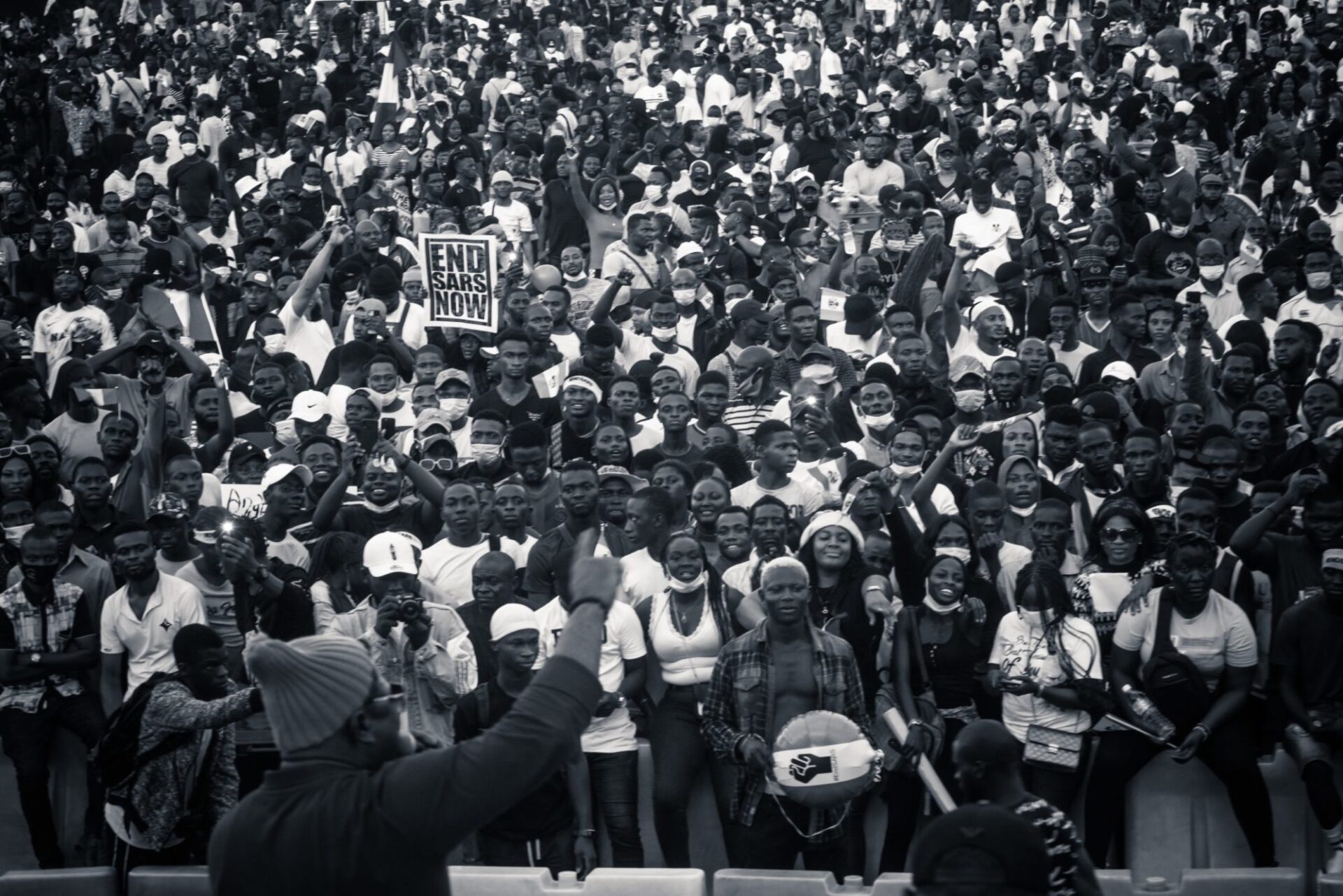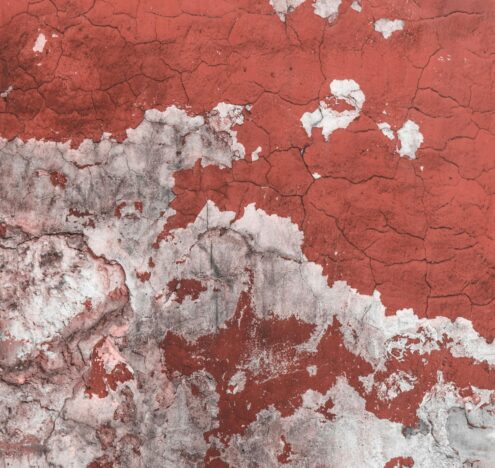In August this year, Wale* was driving with his friends when the police stopped them. They said he was driving erratically. Wale pushed back and said he had been driving normally. But soon, the tone changed. The police accused Wale and his friends of being “yahoo boys” or cybercriminals. Wale was arrested and taken to the station around 3 p.m. but lingered unprocessed until the middle of the night when the police finally brought him out to write a statement. “They did that to break our spirits and make sure we wouldn’t be arguing with them,” Wale said.
After the police pressured him, Wale wrote a spoon-fed statement confessing he was a cybercriminal. Then the negotiations began. To secure their release, Wale and his friends had to pay 500,000 naira (1,150 USD) each. Wale said he could not afford that, first because he was not a yahoo boy, and second, because he just did not have that much money. They haggled back and forth, and eventually, Wale paid 250,000 naira (575 USD) to the police, in cash.
“Omo, Police don show me pepper,” Wale said in Pidgin. Just this year, he has been arrested and extorted by the police three times. He shares this reality with many young Nigerians, who took to the streets in October 2020 to protest unlawful police profiling, brutality, and extortion. Two years later, things have only changed on paper. In reality, young Nigerians still face the same profiling and extortion that existed before the protests.
A LEGACY OF VIOLENCE
Wale’s first encounter with the Nigerian Police was in 2019. Then a student at Unilorin, a federal university in North Central Nigeria, Wale was about to board a motorcycle with his friend when the policemen stopped them. “The first thing they said was, “tell us you’re yahoo boys and we’ll help you,” Wale recalled. Yahoo boys refer to young Nigerian cybercriminals named after their first trade tool from decades back, Yahoo! Mail.
When Wale told them he wasn’t a yahoo boy, one of them slapped him. They asked him for his phone and he showed them a feature phone he was using because his smartphone had been stolen less than a week before. They slapped him again and then brought him and his friend to a secluded bush area. “Maybe because of how I was dressed, they insisted I was a yahoo boy.” Wale was wearing ripped jeans, a T-shirt, and a neck chain. Later, he would get the chance to explain himself to one of the policemen, who took pity on him and let him go. Though when Wale asked about his friend, the policeman threatened to shoot him. Throughout the course of the entire encounter, Wale recalls getting slapped at least five times.
Wale managed to stay clear of the police since then, but in early 2020, he was accosted again, but this time in Lagos with his brother. They had to bribe the policemen with a sum of 15,000 naira ($35) to secure their release.
Wale isn’t the only one with experiences like this, Nigeria’s policemen are notorious for profiling young Nigerians, which then serves as an excuse to extort and brutalize their victims. A 2010 report by Human Rights Watch interviewed 30 people across different Nigerian states, all of whom had paid or witnessed payment made to the police, in order to secure the release of someone from detention. Another report from 2005 documented gross torture and deaths meted out by the police.
A particular faction of the police known as the Special Anti-Robbery Squad (SARS) was set up to fight armed robbery in the country but was also notorious for this form of profiling. They employed harsh interrogation tactics to met out untruthful confessions from their victims, after which they extorted them and their family members. In 2020, Amnesty International documented at least “82 cases of torture, ill-treatment and extra-judicial execution” by SARS between January 2017 and May 2020.
ENOUGH
In October 2020, young Nigerians had enough of special squad after a SARS officer allegedly shot and killed a young man in Delta State. A series of protests tagged #EndSARS soon engulfed the country. Initially, protesters demanded the disbandment of the SARS unit, but the demands would later expand into a request for extensive reform of the Nigerian police.
The memory of the social movement remains fresh in the mind of young Nigerians. More than ever, many young Nigerians are aware of their role in building the state.
#EndSARS was in and of itself an indicator of Nigeria’s police brutality. On Oct. 10, 2020 Jimoh Isiaq was shot and killed when members of the Nigerian police engaged protesters in Ibadan. On Oct. 12, 2020, other protesters were killed by police bullets in Surulere, Lagos. In Abuja and many other states, the police used force against peaceful protesters. In Mushin, an altercation between protesters and the police led to at least 10 deaths and many more injured. On Oct. 20, 2020, in an event now known as the #LekkiMassacre, the lights went off and members of the Nigerian army shot at demonstrators at the Lekki toll gate, leaving at least nine dead, four presumed dead, and 33 assaulted.
The government denied any shooting at Lekki. Despite countless eyewitnesses, videos, and the testimonies of the families of the victims, at five different points, the Minister of Information Lai Muhammed denied the occurrence of any death or shooting at the Lekki toll gate. The Lekki Massacre marked the unofficial end of the protests in 2020. Many Nigerians became afraid of protesting, scared they might also be killed to no end. And for those arrested during the protests, many spent months in detention.
Like many young Nigerians, Wale protested in 2020, expressing all the bottled anger from when he had been harassed by the police before. He protested in Ojota and around the University of Lagos, hoping that something would change. But today, he’s lost most of that fighting spirit. To prevent more encounters with the police, Wale stopped driving his car, and reduced the number of times he goes out. When he goes out, he makes sure to carry the least expensive of his phones. The reality he lives today is very different from what he envisioned when he was protesting two years ago.
CONTINUING POLICE BRUTALITY
Although SARS was disbanded during the 2020 protests, extortion and brutality by the police are still widespread. In the first quarter of 2022, Nigerians filed 287 complaints against members of the Nigerian Police, with complaints ranging from professional misconduct to requesting money for bail.
The #EndSARS protests made their mark, however small. Since the protest, political awareness among young Nigerians has changed, and so has the approach to technology. In a historical highlight, a candidate from neither of the country’s two major parties is a noteworthy contender for the presidential seat. “Police brutality is still in vogue, but I can say the cases are now being addressed better,” said Ridwan Oke, a lawyer and human right activist who assisted young Nigerians arrested by the police during and after the protests. According to Oke, the protests had an impact on policies and caused the police to be more interactive with citizens. Getting justice, to some extent, has also become easier, he said.
After more than a year, the #EndSARS panel, appointed by the government to secure justice for victims of police brutality finally concluded that Nigerians were shot and killed at Lekki Toll Gate, agreeing that soldiers left their base and shot at peaceful protesters who were waving the Nigerian flag while singing the national anthem, but there have been no steps toward accountability for the perpetrators. Justice is yet to be served to those who were killed and harmed during the protests. In September 2021, many Nigerians who were arrested during the protests were still in detention. One of the protesters who was recently released from the Lagos Kirikiri prison had to be hospitalized, citing unhealthy food and handling in the prison as a cause.
The memory of the social movement remains fresh in the mind of young Nigerians. More than ever, many young Nigerians are aware of their role in building the state. This, in and of itself, is a sign of progress, says Oke. “EndSARS ensured that the youths realized their status in nation-building,” he said.
*”Wale” asked to be identified by a pseudonym to protect his identity.
Olatunji Olaigbe is a Nigerian freelance journalist. He’s a winner of the 2021 IOM West and Central Africa Migration Journalism Awards.





















